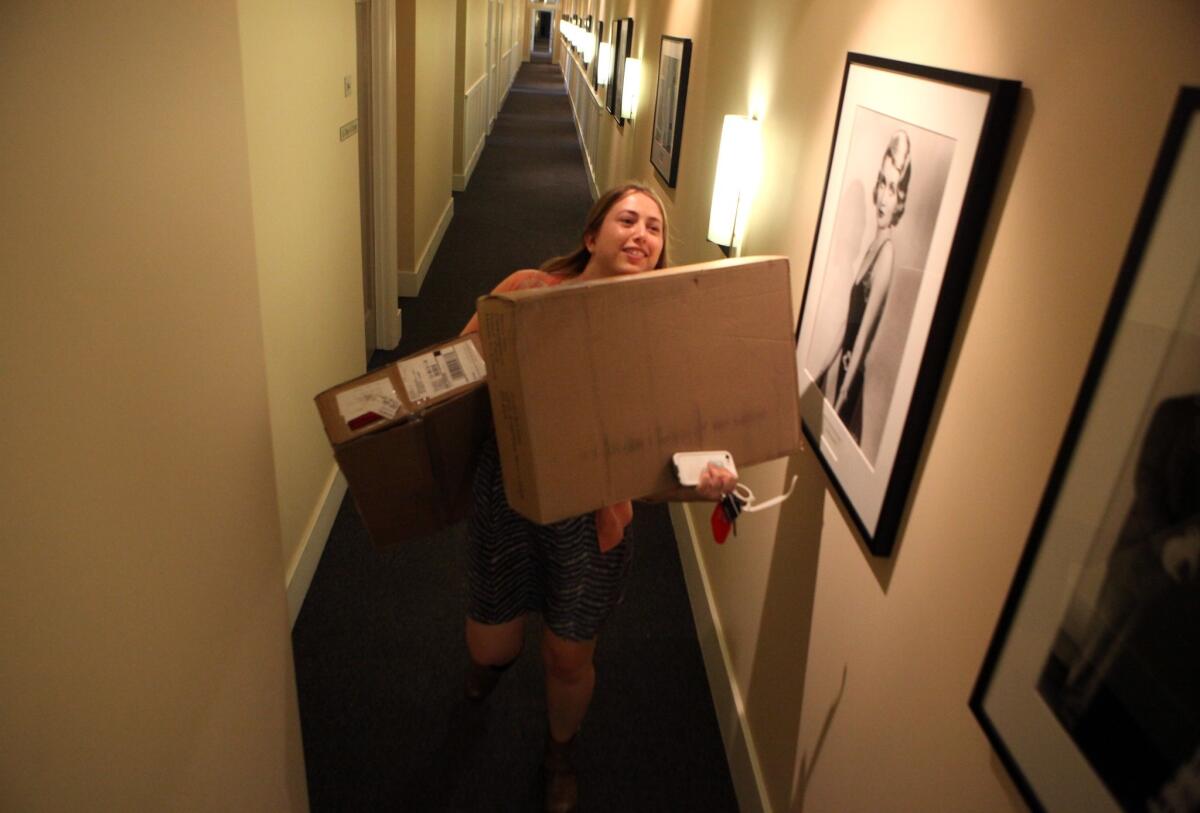#PayUpHollywood explained: Industry assistants are speaking out about their wages

Hollywood assistants are saying #PayUpHollywood in a new effort to shed light on what they say are exceedingly low wages in the entertainment industry.
A heated public discourse about the pay gap between support staff and those they work for has been raging on social media since last week as assistants shared their horror stories, including ever-growing lists of duties and income so low they can’t pay their bills.
Working as an assistant, whether to a Hollywood creative, on a production, or with an agent or any other person in power, has long been considered a way into the entertainment industry. But many feel locked into non-union jobs with noncompetitive pay because of intense competition for the entry-level gigs.
Historically, a person might work as an assistant for a year or so, get the attention of higher-ups and then move on to a better gig. But the industry has changed, muddying the path forward in the business. Many assistants pointed out this past week that the jobs get less financially sustainable the longer a person does them.
Among the issues being aired: expensive job requirements (nice clothes, for example, or a car), workweeks that regularly reach 60 hours or more, untenable working conditions, and the inability to keep up with L.A.’s cost of living. And in an industry that has been attempting to bring diversity to its ranks, low pay drives out those without the wherewithal to live on assistant wages alone.
Some have called for a walkout en masse to bring industry attention to a cause that has been an open secret in Hollywood for decades.
At this point, the push appears to be more ideological than practical.
Coffee, scripts, even guns — such is the life of the lowly production assistant. But for many aspiring filmmakers, a PA gig is seen as a resume builder or an opportunity to network, despite the long hours and low (or no) pay.
The issue came to the fore with the help of the prominent industry-related podcast “Scriptnotes.”
“Just because a lot of people want these jobs doesn’t mean you can get away with paying people little for them. There’s going to be a riot,” “Chernobyl” screenwriter Craig Mazin said in a recent episode of the show, which he hosts with “Aladdin” writer John August. “And I will just say to them, all of you, who are underpaying these people: You are playing with fire. They have your emails. They have your information. Wise up. If you don’t want to do the right thing because you’re a good person, do the right thing because you’re a prudent person.”
Mazin repeatedly said that people who are well-off in the industry have a moral obligation to speak up on behalf of those who are not.
A representative of the Association of Talent Agents was not immediately available for comment Wednesday. An Alliance of Motion Pictures and Television Producers representative declined to comment.
“It’s a class privilege to be able to work in this industry nowadays,” said TV writer and Writers Guild of America board member Liz Alper, who created the #PayUpHollywood hashtag, talking to Variety.
On Twitter, Alper dove into the issue, especially the excuses for maintaining the status quo.
Among them: “You’re technically a temp for a year,” “But there’s overtime” or “That’s how it’s always been.” She spotlighted her own experiences and has fervently retweeted others’ since Sunday, when #PayUpHollywood began to trend in Los Angeles.
She also called on companies to pay for the work they’re actually requiring of their support staff, and for creatives to demand higher pay for their assistants.
“Scriptnotes” hosts Mazin and August also said they started as assistants.
“The way they’re doing this ... is essentially relying on the fact that they can get rid of [the assistant] and somebody else will be there,” Mazin said during the podcast. “They’ll shove them in. They’ll train them and make them do it and they’ll get rid of them.
“It comes down to a callous disregard for people.”
The screenwriters were tipped off to the conversation by an email from former industry assistant Kelley Mathys, who wrote that “low assistant pay is still a massive gatekeeper to the industry and preventing meaningful movement for diversity,” according to the Hollywood Reporter.
August, in the podcast, foresaw “a revolution of some kind” because of the scale of the problem.
Mazin agreed, saying, “You can’t keep this going. This is disgusting. It has to stop. And what we’re doing is creating an entire generation in this business that is disgusted by the business and who looks at their own bosses as gross hypocrites. And they are. ... There is no excuse for it.”
Last week, the two screenwriters called on assistants to send in their stories and to focus on the effects of their low wages. In the episode that dropped Tuesday, they showcased testimonials from writers’ assistants, production assistants, agency assistants, studio assistants and temps, and talked about the higher-ups who enable financial inequities.
Robert De Niro and former employee Graham Chase Robinson are embroiled in dueling lawsuits. We break down the he said/she said nature of their complaints.
“These decision-makers [people in their 40s and 50s] are making two fundamental mistakes. First, they’re assuming that assistants are pretty much exactly like, well, me in 1994: white Americans just out of college with no kids and little debt who often have parents that can help out with expenses,” August wrote on his blog.
He continued: “Second, these decision-makers are ignoring how much has changed since they were assistants two decades ago. A non-exhaustive list: 1. Los Angeles has gotten much more expensive. 2. Assistants stay assistants longer than they used to. 3. Owning a car is still essential, and costs more. 4. Medical insurance is pricier. 5. Short seasons make it harder to advance.”
Here’s a sampling of tweets and the issues they highlighted:
More to Read
Inside the business of entertainment
The Wide Shot brings you news, analysis and insights on everything from streaming wars to production — and what it all means for the future.
You may occasionally receive promotional content from the Los Angeles Times.













